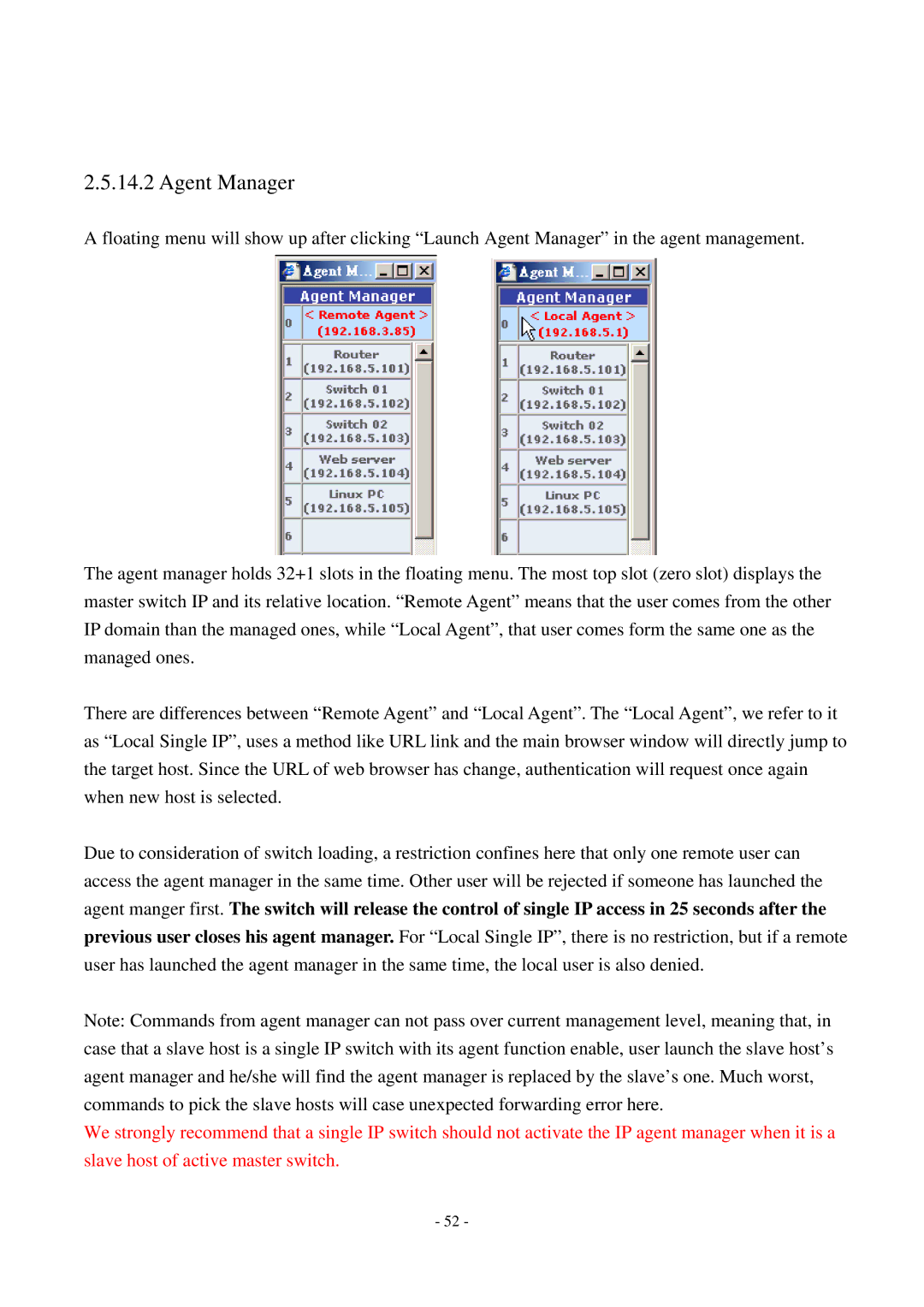
2.5.14.2 Agent Manager
A floating menu will show up after clicking “Launch Agent Manager” in the agent management.
The agent manager holds 32+1 slots in the floating menu. The most top slot (zero slot) displays the master switch IP and its relative location. “Remote Agent” means that the user comes from the other IP domain than the managed ones, while “Local Agent”, that user comes form the same one as the managed ones.
There are differences between “Remote Agent” and “Local Agent”. The “Local Agent”, we refer to it as “Local Single IP”, uses a method like URL link and the main browser window will directly jump to the target host. Since the URL of web browser has change, authentication will request once again when new host is selected.
Due to consideration of switch loading, a restriction confines here that only one remote user can access the agent manager in the same time. Other user will be rejected if someone has launched the agent manger first. The switch will release the control of single IP access in 25 seconds after the previous user closes his agent manager. For “Local Single IP”, there is no restriction, but if a remote user has launched the agent manager in the same time, the local user is also denied.
Note: Commands from agent manager can not pass over current management level, meaning that, in case that a slave host is a single IP switch with its agent function enable, user launch the slave host’s agent manager and he/she will find the agent manager is replaced by the slave’s one. Much worst, commands to pick the slave hosts will case unexpected forwarding error here.
We strongly recommend that a single IP switch should not activate the IP agent manager when it is a slave host of active master switch.
- 52 -
